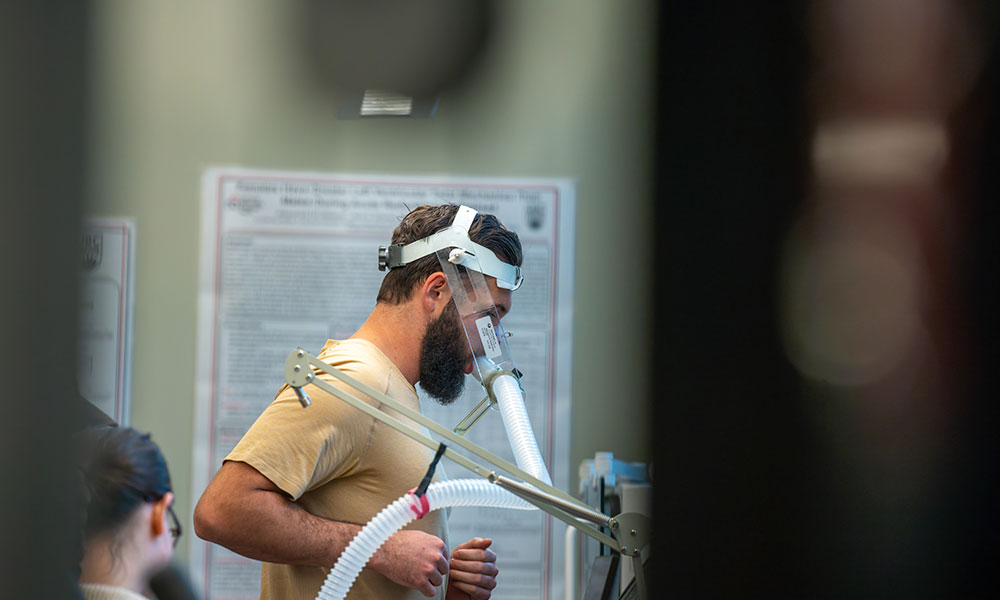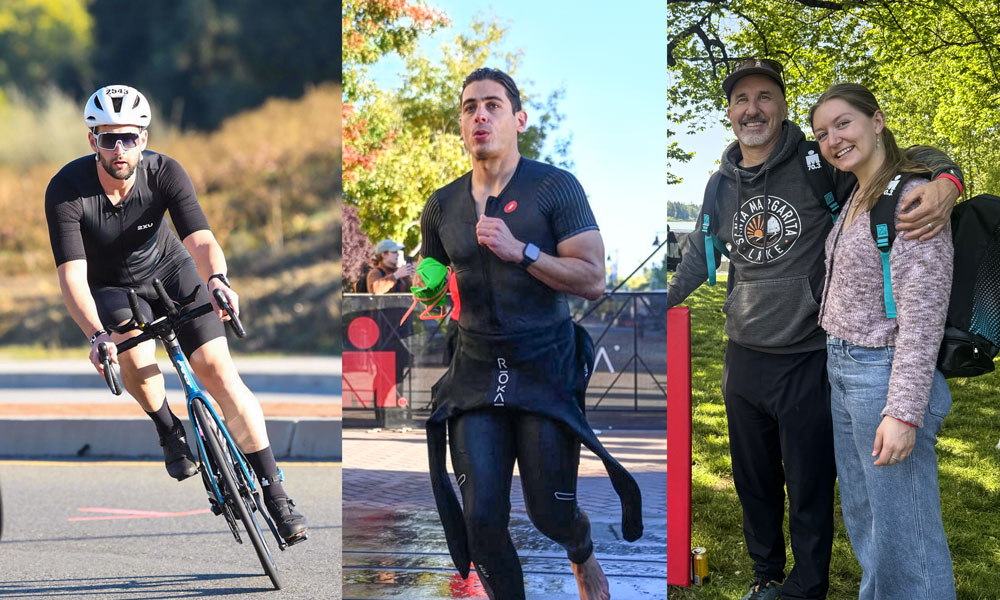They want to know: What a year-long training program will do to cardiovascular, immune, and metabolic function, as well as how an individual’s psychology may change?
“When someone moves from being largely sedentary to then being able to complete a long-distance triathlon, it’s a massive physiological and psychological shift,” explains Dr. Robert Shave, a Professor of Health and Exercise Sciences at UBC Okanagan.
“Scientifically, we know that competitive athletes are fitter and healthier than people who don’t exercise. But we know surprisingly little about how the body actually responds to endurance training over a prolonged period of time.”
“We see each other on the app, or out training on the same routes. There’s this feeling that we’re in it together, even if we’re all at different paces.”
Turning sweat into science
The ULTRA Project is more than just a comprehensive training plan—it’s one of the most ambitious exercise research studies ever conducted at UBC Okanagan.
Participants meet with the research team six times over the year, each time undergoing multi-day assessments ranging from bloodwork and aerobic capacity testing to psychological surveys, body composition scans and ultrasound imaging of the heart and arteries.
Training plans for the participants are delivered via a custom phone app and monitored through heart rate data. To remain in the study, participants need to complete at least 80 per cent of the training program, which gradually ramps up to a maximum of 17 hours per week.
The project brings together a large, cross-disciplinary team, including collaborators from UBC’s Vancouver campus and Harvard University, as well as doctoral, masters and post-doctoral researchers interested in cardiology, physiology and psychology.

Here, Bruce undergoes aerobic capacity testing at UBC Okanagan, which was conducted at several points throughout the study.
Accountability is the secret ingredient
While the science is rigorous, the heart of the project is human.
Participants say the sense of connection—both to the research team and to each other—is one of the most powerful motivators.
“We see each other on the app, or out training on the same routes,” says undergraduate Chemistry student and study participant Sophia Vanslyke. “There’s this feeling that we’re in it together, even if we’re all at different paces.”
Bruce Aitken, another participant and UBC alumnus, agrees. “It’s not just about crossing the finish line. It’s about committing to something with other people. I’ve met some great friends through this, including Vicens.”
“Through this study, I’ve really surprised myself with what I can do,” adds Paneque.

